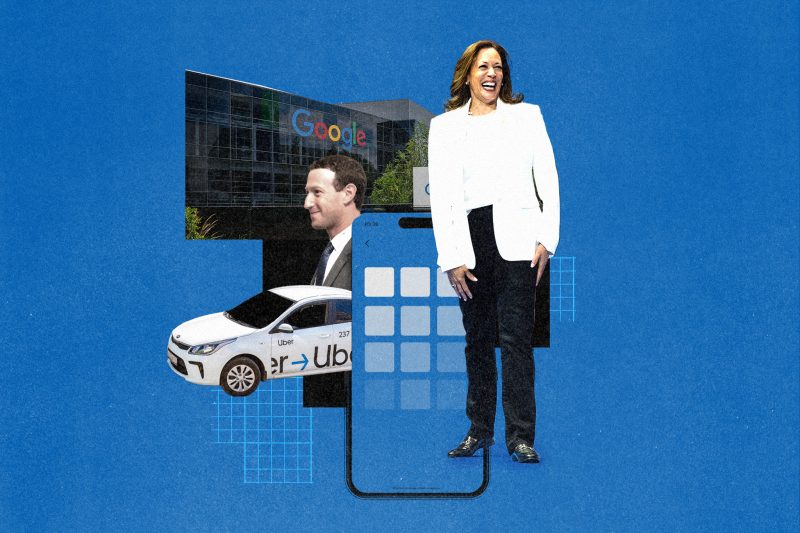In the world of politics, endorsements and support from major players in various industries can make a significant impact on a candidate’s success. Such influence is particularly evident when it comes to candidates in Silicon Valley’s home state of California. Kamala Harris, a well-known political figure who has roots in the state, has received support from the tech industry throughout her career. As a former Attorney General of California and now the Vice President of the United States, Harris has built relationships with key figures in Silicon Valley. In turn, the technology sector has shown its support for Harris through both financial contributions and advocacy.
Harris’ ties to the tech industry date back to her time as the Attorney General of California. During this period, she worked closely with Silicon Valley companies on various issues, ranging from cybersecurity to consumer protection. These collaborations not only helped Harris establish herself as a knowledgeable and effective leader but also laid the foundation for future support from the tech sector.
One of the key reasons why Silicon Valley has backed Harris is her stance on important issues that resonate with the industry. Harris has been a vocal supporter of initiatives related to technology and innovation, such as expanding high-speed internet access, protecting data privacy, and promoting STEM education. Her advocacy for these issues aligns closely with the interests of Silicon Valley, making her a natural choice for tech leaders seeking a champion in government.
Furthermore, Harris’ approach to regulation and antitrust in the tech industry has resonated positively with some Silicon Valley stakeholders. While she recognizes the importance of fostering innovation, Harris also believes in the need for oversight and accountability in the industry. This balanced perspective has earned her respect from leaders who value a healthy regulatory environment that protects both consumers and businesses.
The support that Harris has received from Silicon Valley is not limited to rhetoric alone. Tech industry heavyweights have also shown their backing through financial contributions to Harris’ campaigns. Donations from individuals affiliated with major tech companies have played a significant role in funding her political endeavors, highlighting the mutual interest that exists between Harris and the tech sector.
Looking ahead, the question remains whether Harris will reciprocate the support she has received from Silicon Valley. As Vice President, Harris now holds a position of power that can influence policies impacting the tech industry. It will be crucial for her to maintain a delicate balance between representing the interests of Silicon Valley and prioritizing the needs of the broader public.
In conclusion, the relationship between Kamala Harris and Silicon Valley is one built on mutual respect and shared interests. Harris’ track record of supporting technology-related initiatives and her collaborative approach to governance have endeared her to key players in the tech industry. As she continues her political journey, Harris will undoubtedly look to leverage the support she has garnered from Silicon Valley while fulfilling her responsibilities as a leader representing all Californians.
